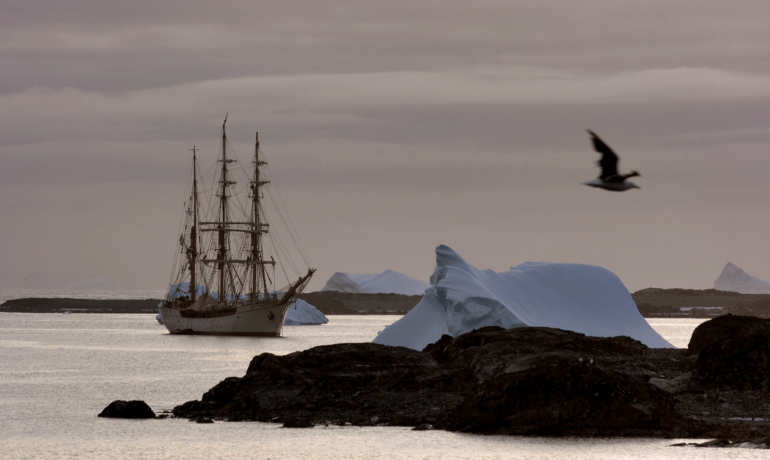For the first time the State Institution National Antarctic Scientific Center of Ukraine participates in the meeting of the Commission for the Conservation of Antarctic Marine Living Resources (CCAMLR). At the closing session of the 37th CCAMLR meeting, which began on October 22 in the Australian city of Hobart and will continue until November 2, 2018, our Center will be represented by Andriy Fedchuk, head of the Scientific and Technical Information Department of the National Antarctic Scientific Center.
Currently in the CCAMLR area of operation fishing vessels flying the flag of Ukraine are fishing for valuable species of marine bioresources, in particular, Antarctic toothfish (Dissostichus mawsoni) and Antarctic krill. Moreover, domestic scientists implement scientific programs approved by the relevant CCAMLR committees, and actively participate in the international system of scientific observation on the Ukrainian vessels and vessels of other CCAMLR member countries.
“The CCAMLR area of responsibility is of strategic importance to the development of the fishing ocean fleet of Ukraine, since the Antarctic marine living resources are the most promising reserve for development, – says Andriy Fedchuk. – Therefore, the purpose of the participation of Ukrainian delegation in this event is to protect the national interests of Ukraine in the field of the efficient use of Antarctic marine bioresources”.
Owing to the participation of the delegation of Ukrainian experts in the CCAMLR working groups meetings the following results are expected:
provision of conditions for effective fishing activities of vessels under the State Flag of Ukraine in the CCAMLR Convention Area;
approval of the results of research work already carried out and approval of research plans of Ukraine for the next fishing season (2018/2019);
assistance in conservation and improvement of the rational system of protection of marine ecosystems and living resources of Antarctica, which will ensure conditions of sustainable use and effective restoration of exploited populations of fish and invertebrates;
inclusion in the spatial management plan of the marine protected area in Domain 1 “The western part of the Antarctic Peninsula water area” (originating countries are Argentina and Chile) of biogeographic polygons and monitoring sites in the water area of the Argentine Islands (this is where the Ukrainian Antarctic Akademik Vernadsky Station is located) as control sites to assess the impact of climate change on benthos groups and penguin populations;
further deepening of international cooperation in this region of the World Ocean.


